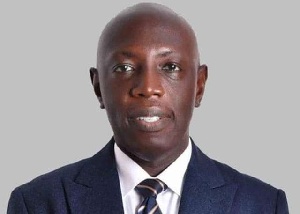Africa News of Saturday, 7 June 2025
Source: www.ghanawebbers.com
Nigeria: Why Is the SSS Afraid of Pat Utomi's 'Shadow Government', By Jibrin Ibrahim
For over fifty years, I have studied political science. I am often surprised by security agencies' extreme reactions to political criticism. Recently, my friend Pat Utomi announced a shadow government initiative. This group aims to monitor governance and push for electoral reforms for the 2027 elections. I believe this is a brilliant move to enhance democratic scrutiny.
However, the State Security Service (SSS) responded differently. They threatened Utomi and filed an application in Abuja's Federal High Court. The SSS seeks to prevent him from making public statements or organizing rallies about the shadow government. They accused him of trying to usurp President Bola Tinubu's authority through unlawful activities disguised as civic engagement.
The SSS employs many political scientists who understand history. President Tinubu rose to power after decades of criticism against past administrations. He formed parties and led protests for democracy. Their analysis should show that what benefits Tinubu can also benefit Utomi.
Nigeria transitioned from military rule to multiparty democracy due to such efforts. The SSS should not have sought a court injunction against Utomi’s activities. These actions are legal, constitutional, and beneficial for democracy building.
Their claim that Utomi's actions could incite riots is unfounded. A shadow government initiative does not threaten democracy; it enhances accountability. In Britain, opposition parties scrutinize government actions and inform citizens about their performance.
One reason Nigeria struggles with governance is vague opposition criticisms. Specific critiques are necessary for effective performance monitoring of leadership. A citizen-focused monitoring team is a positive development.
I appreciate Kehinde's statement on behalf of the DSS regarding legal channels. He described the DSS as "civilised" and "law-abiding." This claim obligates them not to restrict Utomi’s rights under the Constitution.
The DSS argues that establishing a shadow government attempts to usurp executive powers illegally. However, they cannot equate a shadow government with an actual government. The proposed Big Tent Shadow Cabinet focuses on policy analysis and electoral reforms.
This group demands amendments to ensure electronic voting and result transmission in elections. They also advocate for regional autonomy and local government independence in Nigeria’s political system.
In a recent press conference, they highlighted ambiguities in the 2022 Electoral Act exposed during the last election cycle. Reforming these laws can help clarify processes and reduce electoral disputes.
The DSS needs to reconsider its stance on opposition politics as a threat to stability. As Pat Utomi returns from abroad, I urge them to view his efforts positively for Nigerian democracy's growth.











